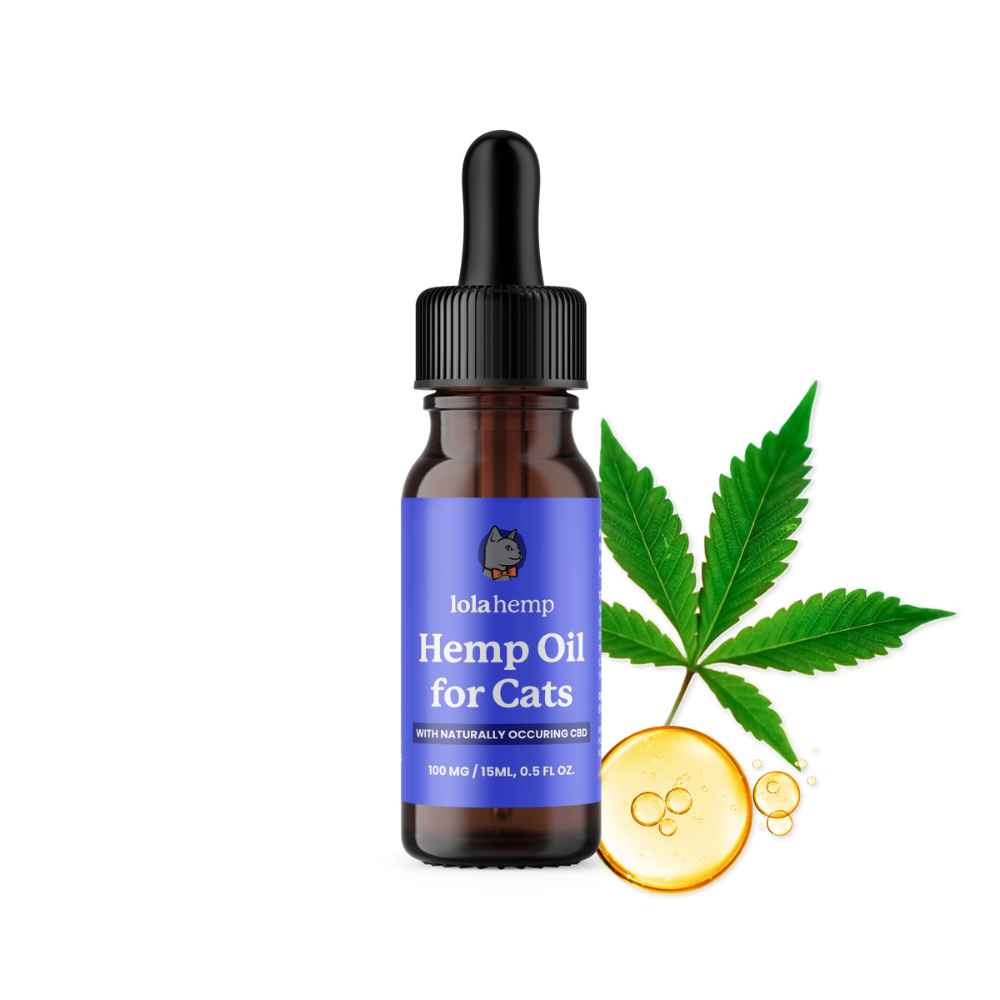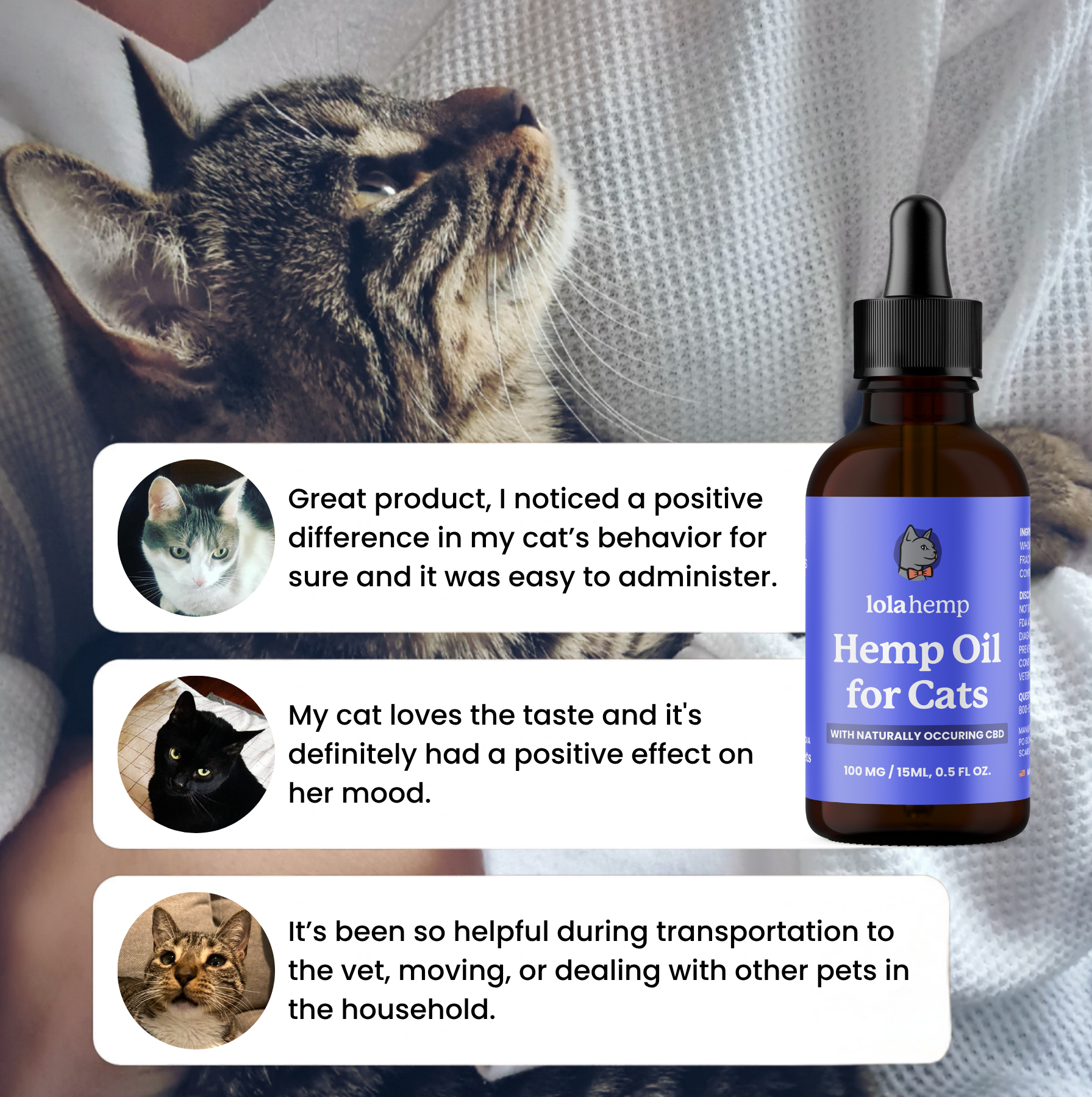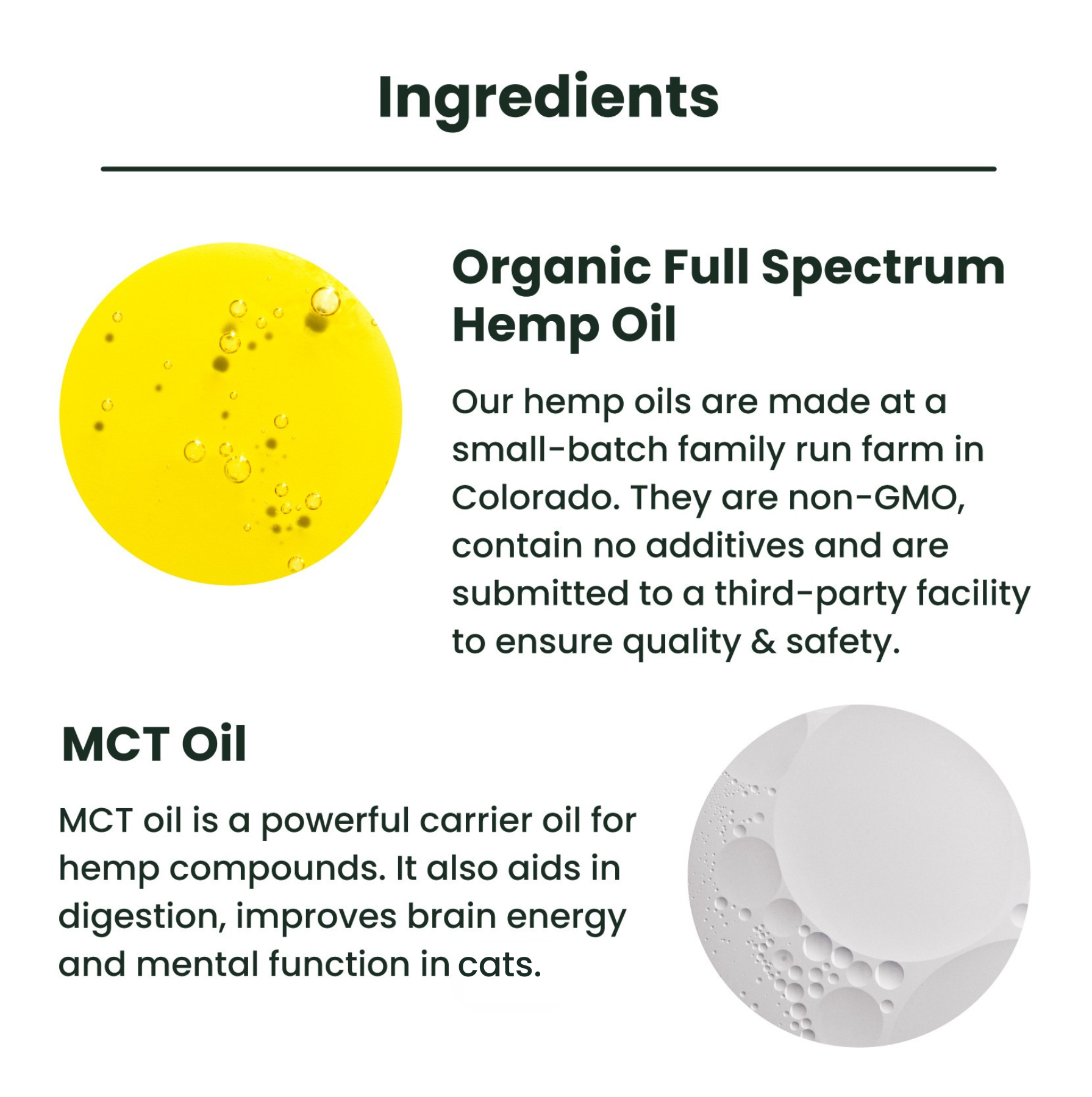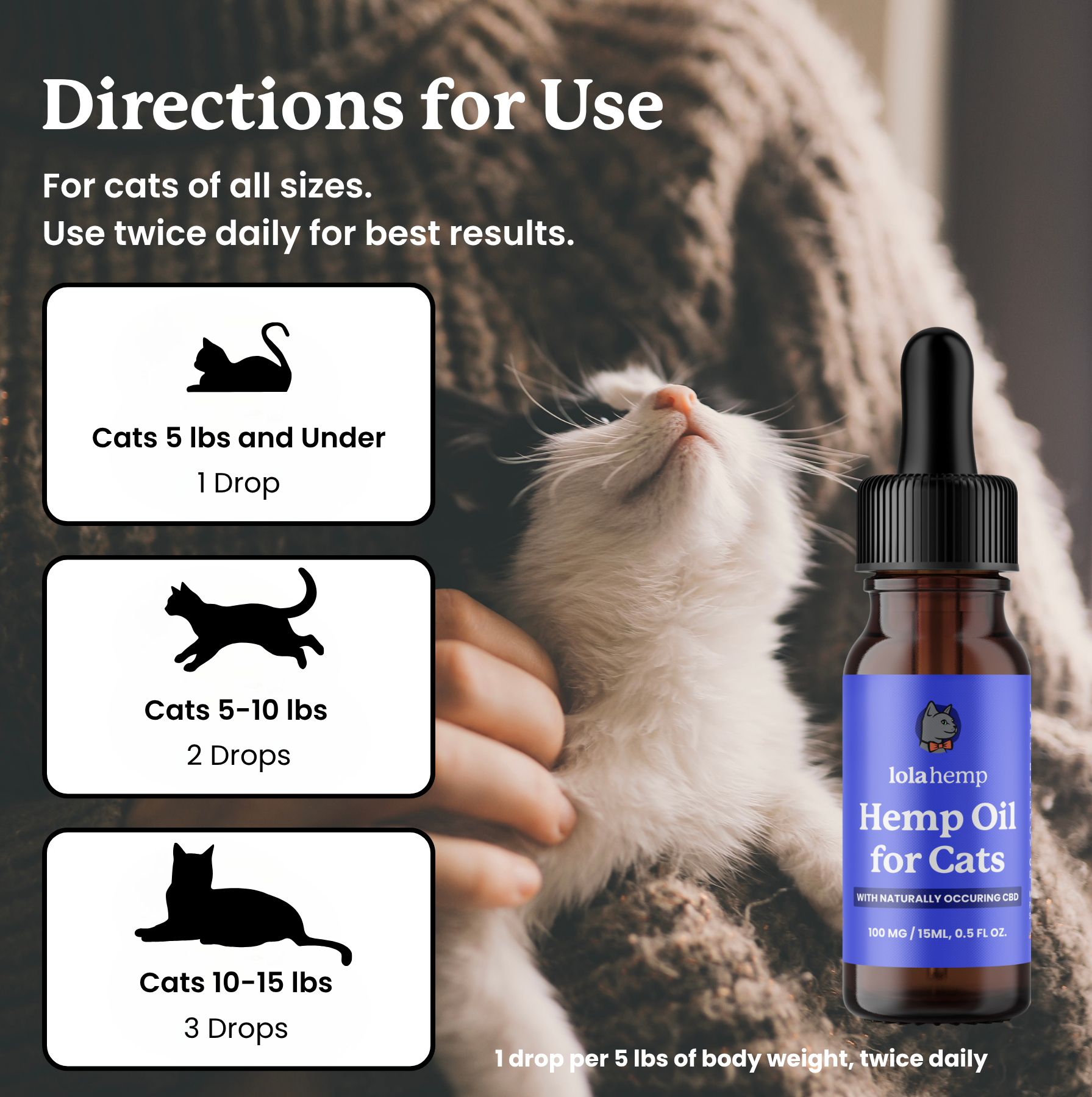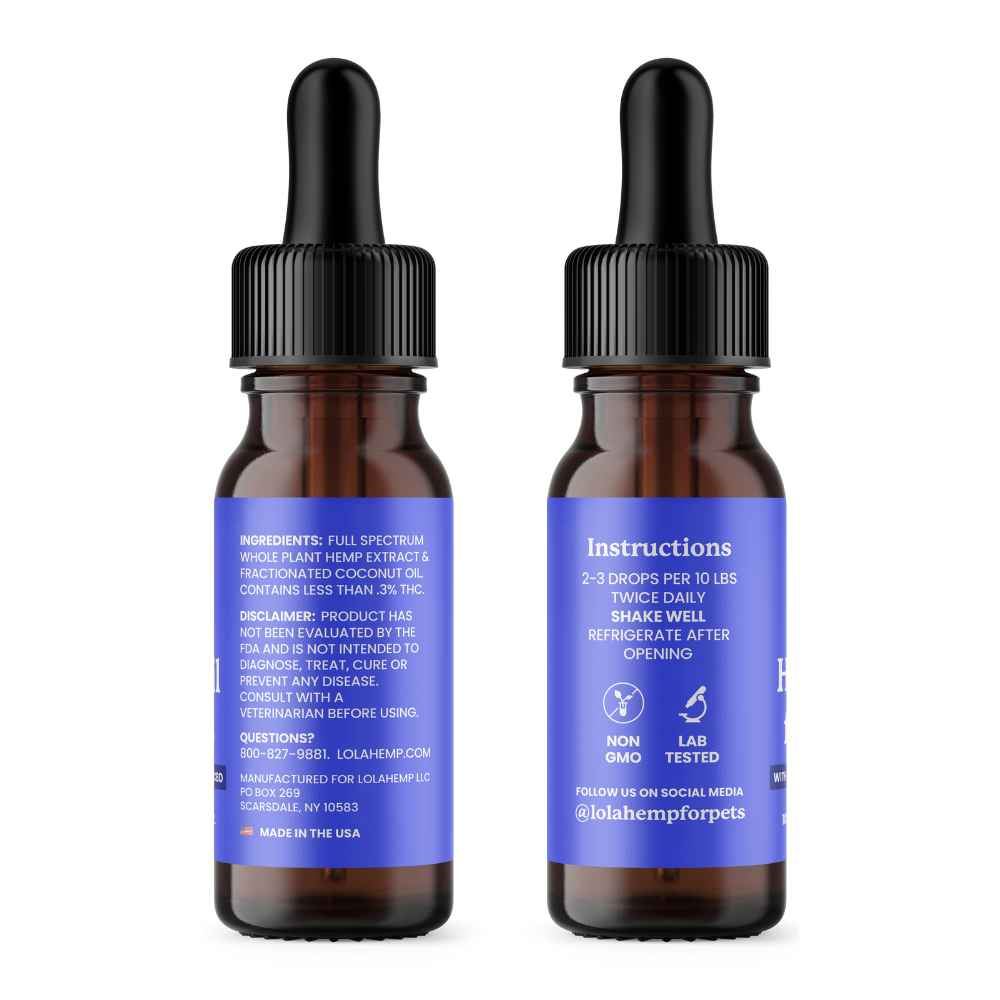CBD (cannabidiol) is becoming increasingly popular as a natural remedy for various health issues in cats. While it offers many potential benefits, it’s important to be aware of how CBD may interact with other medications your cat might be taking.
Drug interactions could potentially alter the effectiveness of medications or lead to unintended side effects, so understanding these risks is crucial. It's also essential to find a vet-recommended CBD oil cats love as a solution for discomfort and distress.
Common Cat Medicines That Interact with CBD
In some cases, CBD can influence liver enzymes responsible for metabolizing other drugs. The primary concern is that CBD can inhibit certain cytochrome P450 enzymes, which are involved in the breakdown of many common medications.
This inhibition may result in increased blood levels of medications that are normally broken down by these enzymes, potentially leading to toxicity. Alternatively, it could decrease the effectiveness of some drugs by slowing their metabolism.
Here’s a closer look at the most common types of medications that may interact with CBD:

1. Anti-Seizure Medications
Cats with epilepsy or other seizure disorders may be prescribed anti-seizure medications such as phenobarbital or potassium bromide. CBD has been shown to interact with enzymes that metabolize these drugs, potentially affecting their levels in the bloodstream. In some cases, this interaction can either intensify the effects of the anti-seizure medication, leading to toxicity, or reduce its effectiveness, increasing the risk of seizures.
What to do: If your cat is on anti-seizure medication, always consult your veterinarian before introducing CBD to your cat with seizures. They may need to adjust the dosage of either the CBD or the anti-seizure medication.
2. Pain Medications (e.g., NSAIDs)
Nonsteroidal anti-inflammatory drugs (NSAIDs) like meloxicam are commonly prescribed to manage pain and inflammation in cats. While CBD itself has anti-inflammatory properties, combining it with NSAIDs may increase the risk of gastrointestinal upset, ulcers, or liver damage. Both CBD and NSAIDs can affect the liver, so using them together could potentially overwhelm the liver's ability to process them safely.
What to do: Speak with your vet to evaluate the risks of combining CBD with NSAIDs. They may recommend a different pain management approach or monitor your cat more closely for side effects.
3. Steroids (Corticosteroids)
Steroids like prednisolone or dexamethasone are often prescribed for inflammatory conditions, autoimmune diseases, or allergies in cats. CBD’s anti-inflammatory effects could theoretically complement steroids, but there’s a concern that combining the two could increase the risk of immunosuppression or cause gastrointestinal issues.
What to do: If your cat is on steroids, discuss with your veterinarian whether adding CBD is advisable. Your vet may want to monitor your cat for signs of adverse effects.
4. Anti-Coagulants (Blood Thinners)
Cats on medications like warfarin or other blood thinners are at risk for bleeding complications. CBD has mild blood-thinning properties, and when combined with prescribed blood thinners, it could potentially enhance these effects, leading to an increased risk of bleeding.
What to do: If your cat is on a blood thinner, CBD should only be used under strict veterinary supervision. Your vet may want to closely monitor your cat’s blood clotting levels.
5. Other Medications Metabolized by the Liver
Many common medications, such as antibiotics, antifungals, and certain painkillers, are metabolized by the liver. Since CBD can interfere with liver enzymes, it may affect how these medications are processed in your cat’s system, potentially leading to higher or lower levels of the drugs in the bloodstream.
What to do: If your cat is on any medication that is metabolized by the liver, it’s important to consult with your veterinarian before starting CBD to assess the potential for interaction and determine the appropriate dosage.
Managing Drug Interactions
To minimize the risks of drug interactions when using CBD for your cat, consider these steps:
- Consult with Your Veterinarian: Always talk to your vet before introducing CBD, especially if your cat is on any medications. Your veterinarian can help you understand the potential risks and adjust dosages accordingly.
- Start Low and Go Slow: If CBD is introduced, start with a low dose and gradually increase while monitoring for any changes in your cat’s behavior or health.
- Regular Monitoring: If your cat is on CBD and other medications, your vet may recommend more frequent check-ups to monitor liver function, drug levels, and overall health.
- Choose High-Quality CBD: Ensure the CBD you are using is high quality and specifically formulated for pets. Third-party lab testing confirms purity and accurate CBD levels.
Conclusion
While CBD offers numerous benefits for cats, it’s important to be aware of how it may interact with other medications your cat is taking. The impact on liver enzymes and the potential for enhanced or reduced drug effects makes it essential to work closely with your veterinarian before introducing CBD to your cat’s regimen. With proper guidance, CBD can be a safe and effective addition to your cat’s health care routine.
Frequently Asked Questions About CBD Drug Interactions in Cats
Can CBD interfere with my cat’s prescription medications?
Yes. CBD can inhibit certain liver enzymes that metabolize medications, potentially increasing or decreasing drug levels in your cat’s system.
Is CBD safe to use with my cat’s anti-seizure medication?
CBD may interact with drugs like phenobarbital or potassium bromide, so only use it under veterinary supervision.
Can CBD be given with NSAIDs like meloxicam?
It can increase the risk of gastrointestinal or liver issues, so consult your veterinarian before combining CBD with NSAIDs.
Does CBD interact with steroids such as prednisolone?
CBD may enhance some steroid effects or increase side effects, making vet guidance important.
How do I safely introduce CBD if my cat is on other medications?
Start with a low dose, monitor closely, and consult your veterinarian to adjust medications if needed.

